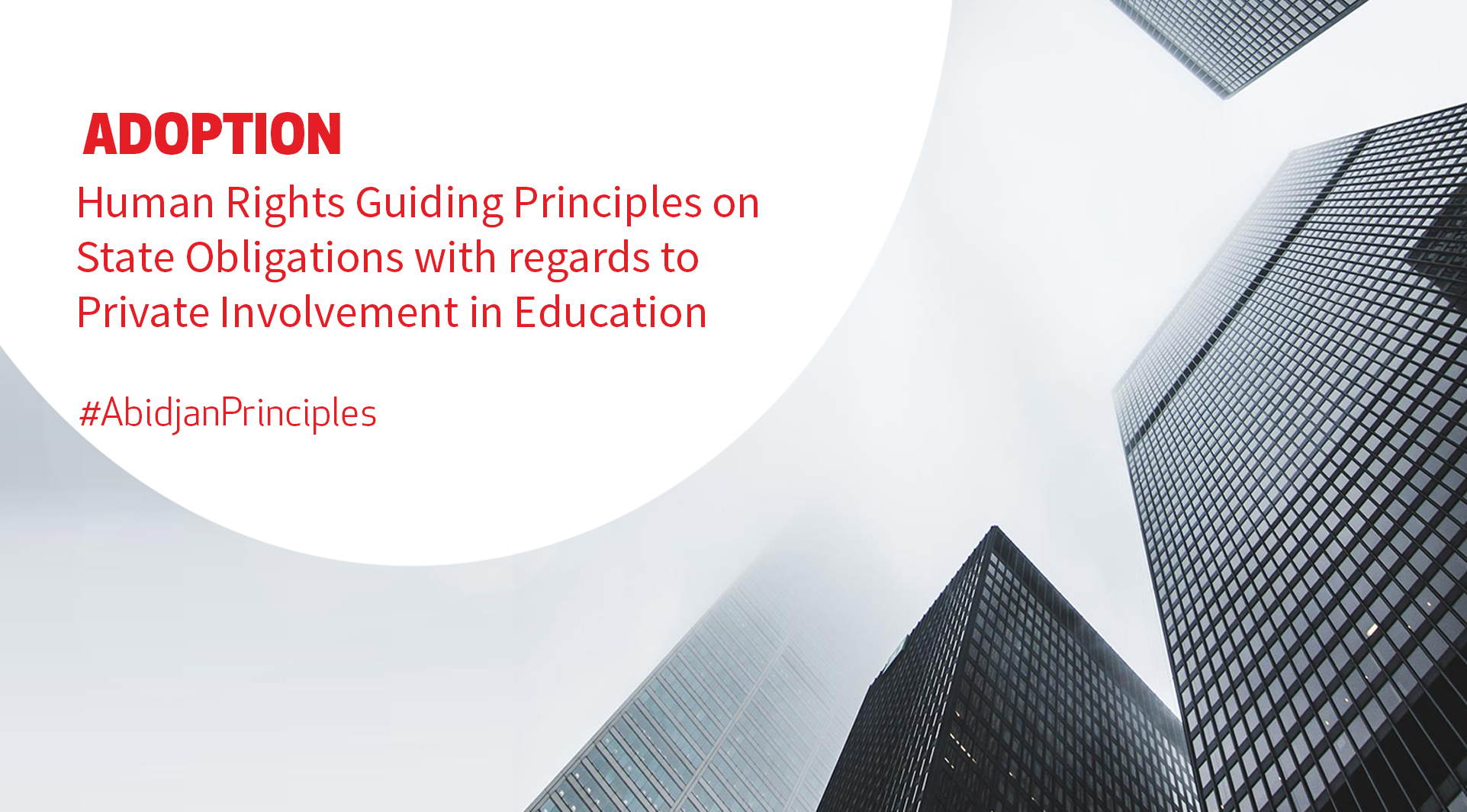Experts from around the world set to meet in Abidjan to adopt new guiding principles on the right to education
On 12-13 of February 2019, education and human rights experts will meet in Abidjan, Côte d’Ivoire, for the adoption of guiding principles strengthening the right to access free quality public education in the context of growing private actor involvement in education.
This landmark text promises to be the new reference point for governments, educators and education providers when debating the respective roles and duties of states and private actors in education. The Guiding Principles unpack existing international human rights law on the right to education and outline practical guidelines for the growing global concern about the negative human rights impacts of the increasing private actor involvement in education.
Drawing on legally binding treaties, jurisprudence and other legal sources, the draft of the text that will be discussed in Abidjan has been developed by a Drafting Committee made up of nine internationally recognised experts on human rights law.
Professor Ann Skelton, the UNESCO Chair of Education Law in Africa, and the Chair of the Drafting Committee, commented: “These Guiding Principles can help ensure States set rules and regulations that guarantee private schools operate in such a way that is positive and does not negatively affect everyone’s right to access free quality public education.”
In order to prepare the text, an open, transparent and broadly consultative process has taken place in the last three years. From 2016 to 2019, a series of national, regional, thematic and online consultations were held to ensure that the resulting text address the different realities on the ground.
“States, including those from the global south, such as Uganda, will benefit from the Guiding Principles in terms of having a reference point for policy development. For advocates, this tool will better enable us to hold governments to account to their obligations to regulate these actors,” said Salima Namusobya, Executive Director at the Initiative for Social and Economic Rights, one of the organisations that supported the process.
The adoption conference is expected to be attended by education and human rights law practitioners from more than 40 countries who will observe the process.
A secretariat made up of Amnesty International, the Equal Education Law Centre, the Global Initiative for Economic, Social, and Cultural Rights, the Initiative for Social and Economic Rights, and the Right to Education Initiative facilitated the consultative process.
A press conference will be held before the conference on 11 February, and on 17 February at 6pm, following the adoption of the much-anticipated final draft of the Abidjan Principles.
You can follow the developments of the Abidjan Adoption Conference at #AbidjanPrinciples, and learn more at www.abidjanprinciples.org
Media Contacts:
For press releases in other languages, images and videos: www.abidjanprinciples.org/media
- Sylvain Aubry (FR/EN), Legal and Policy Advisor, Global Initiative for Economic, Social and Cultural Rights: +254 7 88 28 96 34 / +33 7 81 70 81 96 / sylvain@globalinitiative-escr.org
- Delphine Dorsi (FR/EN/ES), Executive Coordinator, Right to Education Initiative: dorsi@right-to-education.org
- Salima Namusobya (EN), Executive Director, Initiative for Social and Economic Rights: dir@iser-uganda.org
- Rubeena Parker (EN), Head of Research, Equal Education Law Centre: rubeena@eelawcentre.org.za
- Solomon Sacco (EN), Head of International Justice, Amnesty International: sacco@amnesty.org
Hashtag
Follow the adoption process on Twitter at #AbidjanPrinciples
Download the press release: in English, French and Spanish

